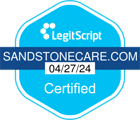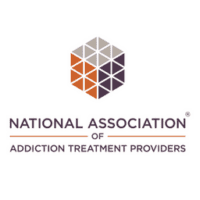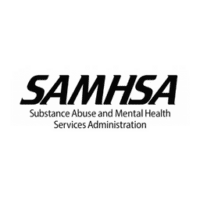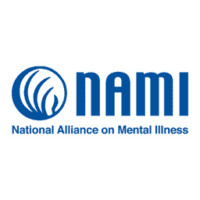Comfortable Bedrooms
We offer quiet double rooms with TVs and private bathrooms so that you can get the rest your body needs to handle withdrawal. Private rooms are available for an additional fee.
Medical detox and inpatient treatment in Colorado Springs, Colorado that helps individuals 18+ overcome substance use, addiction, and co-occurring mental health conditions.
(888) 850-1890 Verify Insurance




Going to detox is a courageous personal choice, and it’s a process each individual handles differently. That’s why we offer a highly individualized program, ensuring our evidence-based treatments are tailored to your unique situation.
Our recovery center has a maximum of 18 clients at a time with a 3 to 1 staff-to-client ratio. When you choose Sandstone Care’s inpatient rehab in Colorado Springs, you’re choosing a detoxification program that puts you first.
Testimonial
“Come and experience what Sandstone offers because it’s not just meetings and groups, it’s a lot more. You connect with people. You connect with therapists and the community. They related to me, they understand me, they know what I am going through, and they also know how to help.” – Alex
At Sandstone Care’s Colorado Springs rehab facilities, you’re more than a client. You’re an individual dealing with unique problems that require personalized solutions. Our friendly, professional medical staff are with you every step of the way when you start your recovery journey with us.
Marijuana has become a way to self-medicate for underlying issues and it’s easy to become dependent on its use.
Studies have found that binge drinking & heavy alcohol use are often ways adults cope with stress and anxiety.
Commonly abused stimulants include methamphetamines, and prescription stimulants, like Ritalin, Adderall, and Concerta.
Opioid misuse occurs when a person uses heroin or misuses prescription pain relievers like hydrocodone, oxycodone, and morphine.
The first 48 hours of detox are crucial, and your comfort and safety during that stage is our highest priority. Once you are stabilized, we will then complete a full medical, psychiatric, and psychological assessment.
These evaluations give us a clear picture of how we can help you in your recovery journey, allowing us to tailor a treatment plan to your unique needs. The assessment process covers the following topics:
In addition to an initial evaluation with our Nurse Practitioner, you will be assessed every four hours by a member of our nursing team. This nursing assessment includes checking vital signs, monitoring withdrawal symptoms, and administering medications as needed.
You will have an initial evaluation of your substance use to make sure that your treatment team has all of the information they need to take care of you in the best way possible.
This information will be gathered again later during the biopsychosocial assessment, which is completed by a therapist or certified addiction counselor.
Each day, you will have a one-on-one check in with a therapist or counselor to evaluate your mental and emotional status, as well as any symptoms of depression, anxiety, PTSD, or any other mental health disorders you may be struggling with.
During the biopsychosocial assessment, you are asked to provide in-depth information about the history of family medical, mental health, and substance use disorders to help inform medical and clinical recommendations and treatment planning.
You will meet with our psychiatric nurse practitioner for an initial evaluation of your mental health and psychiatric status. This evaluation will determine whether or not psychiatric medications would be useful in the management of any symptoms and diagnoses.
It’s important for the medical and clinical staff to know what medications you have been on in the past. If medications are prescribed by the medical team at Colorado Springs Detox Center, regular assessments of medication effectiveness will be completed in order to ensure we are providing the best and most effective care possible.
The discharge planning team works with you individually to build a discharge plan that is unique to you. Depending on your specific needs, they may be given referrals for residential, extended care, or outpatient programs for ongoing aftercare support.
I would recommend this facility to anyone needing help with recovery.
You are more than your addiction, and our program is built to reflect that. We offer 24/7 medically supervised care to support a safe and comfortable stabilization followed by a comprehensive, holistic treatment approach that addresses your physical, psychological, emotional and spiritual needs.
Our inpatient program offers six hours of therapeutic group per day, two individual therapy sessions per week with a licensed therapist, and 24/7 clinical support.
Sandstone Care is not a standalone detox. In addition to our residential program, we have a full continuum of care with varying intensities of inpatient and transitional living programming designed to meet your unique needs.
There are televisions in rooms, high staff to low client ratio, chef-prepared meals, ample green space, and uncompromised support from every staff member. Feeling comfortable is not an extra addition to your treatment, it is one of the core focuses of our program.
We are focused on helping you set a foundation for a strong future. That is why we begin to work with you on a discharge plan from the moment you walk through the door. Your plan includes referrals and a warm hand-off to another treatment center if needed.

Our scientifically proven and evidence-based treatment process continues to earn national praise and foster relationships with the following:
The Continuum of Care
Access a full range of treatments for mental health and substance use disorders. Whether you need a safe transitional living community, inpatient care, or outpatient therapy, we have a program to help.
5-21 days of 24/7 on-site medical supervision.
Our Medically-Assisted Detox and Inpatient Center offers private rooms and 24/7 medically supervised care to support a safe recovery from drugs and alcohol, followed by comprehensive treatment that addresses your physical, psychological, emotional, and spiritual needs.
2-6 Months
Our Transitional Living Program combines the structure of treatment and group living, with the freedom of living away from home.
This level of care is for young adults (18-30) who are not quite ready to heal from home. A safe and supportive living environment integrated with a PHP or IOP level of care so you learn life skills and healthy coping mechanisms in an environment that’s set up for your success.
4 weeks of on-site day treatment.
Our Young Adult Day Treatment Program, also known as Partial Hospitalization Program (PHP), is a highly structured level of care for young adults that offers five days of robust programming a week.
Our two distinct mental health and substance use tracks help young adults to stabilize, begin to understand their mental health and/or addiction struggles, and heal from them. We strive to help our clients become more like the person they want to be without using negative coping strategies or substances to get there.
12 weeks of on-site or virtual treatment.
Our Young Adult IOP, or Intensive Outpatient Program, offers two distinct tracks to address young adult needs, each track consisting of 3-4 days of weekly programming.
In our mood disorder track, we are able to focus on mental health, depression, trauma, and anxiety. In our dual diagnosis track, we are able to support young adults with substance use and mental health challenges. Each focuses on developing positive social, academic, and vocational habits while continuing with their job or school responsibilities.
We help young adults, adults, and their families overcome challenges with drugs, alcohol, mental health issues, trauma, and addiction in Colorado Springs, Colorado.


We understand taking the first step is difficult. There is no shame or guilt in asking for help or more information. We are here to support you in any way we can.